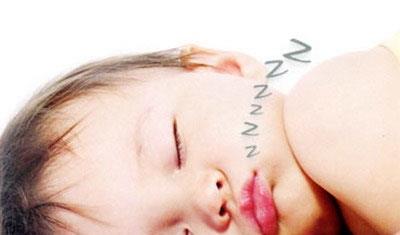Snoring, sneezing and sweating are common phenomena when babies sleep, especially at night. These normal problems can become a concern if accompanied by certain symptoms.
Babies snoring and sneezing habits If your baby snores or sniffles from time to time, you don't need to worry, especially if your baby's snoring is steady. Many babies also snore when they have a stuffy nose. If your baby has a cold, you can try placing a humidifier in the room to help your baby breathe easier.
If your baby is nagging, this can be a sign of concern. In the case of baby snoring at no time and then gasping for breath, it is possible that the baby's airway is blocked. This symptom is called "obstructive sleep apnea". This is a chronic condition, unlike the apnea in the baby's breathing cycle discussed above. At this time, you should take your baby to see a pediatrician or an ear - nose - throat specialist to check.
Another reason for snoring in babies is allergies. In these cases, a bedroom air cleaner or some medicine prescribed by your doctor can help your baby feel better. You should take your baby to see a doctor to determine if he is allergic or not and what you need to do for your baby now.

An infant's snoring can tell mom if she has a respiratory problem
Babies sweat a lot at night
Some babies sweat profusely when their sleep is at its deepest stage at night. Childhood sweating is common, but if you sweat too much, something might go wrong. It can be a sign of congenital heart disease as well as other infections or due to sleep apnea, because the baby is very difficult to breathe, so he will sweat a lot.
One of the risks leading to Sudden Infant Death Syndrome (SIDS) is due to overheating, so your baby's bedroom needs to be cool. In addition, clothes also need to be warm and comfortable enough for the baby to sleep without having to cover the blanket. To avoid danger for the baby, parents should not wrap the baby too many layers, nor should they put bedding or crib in the baby.
The basic rule of thumb is that if you feel hot, your baby will feel hot too. If the indoor temperature is cool, and your baby wears cool clothing but perspires, it's best to talk to your doctor.












